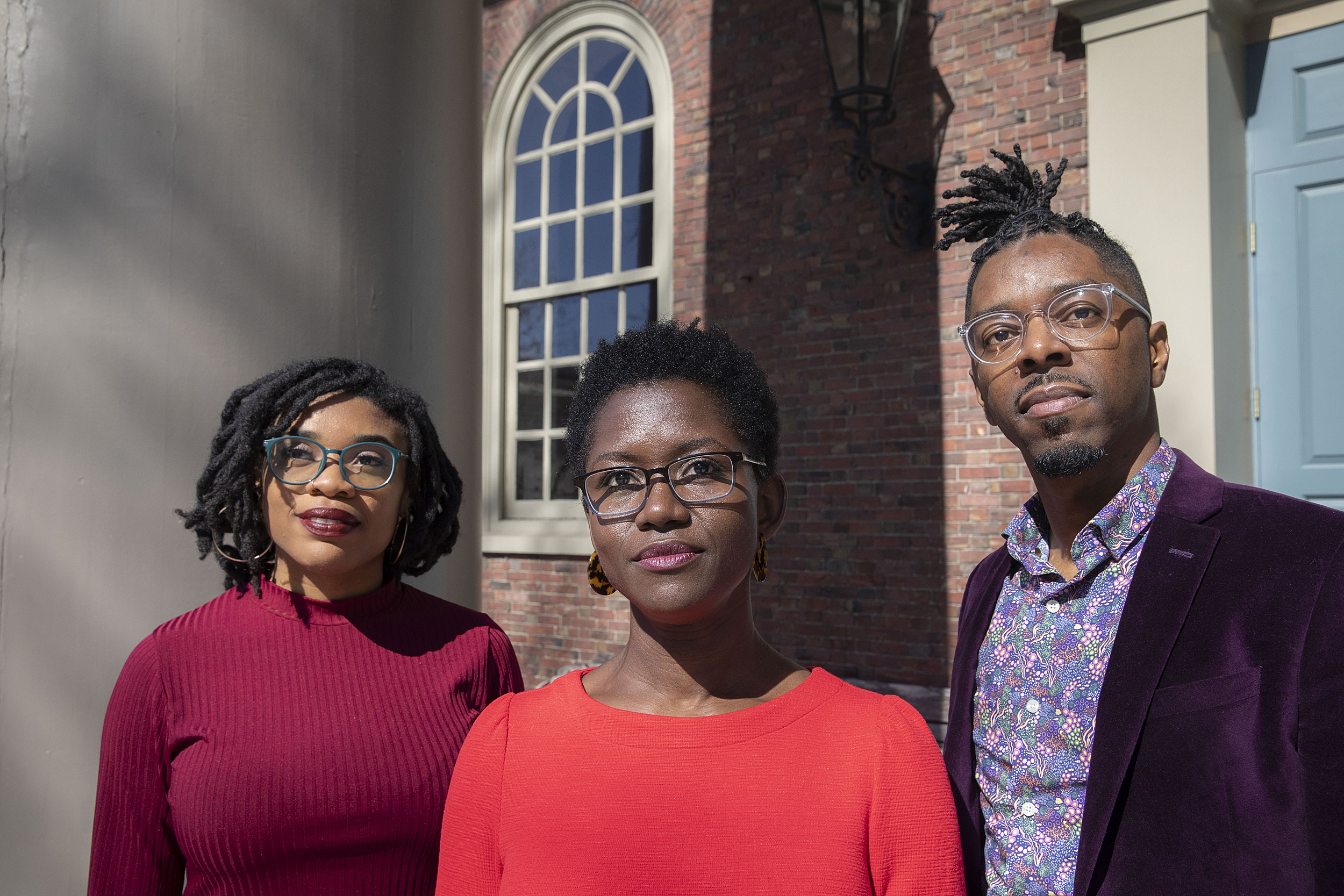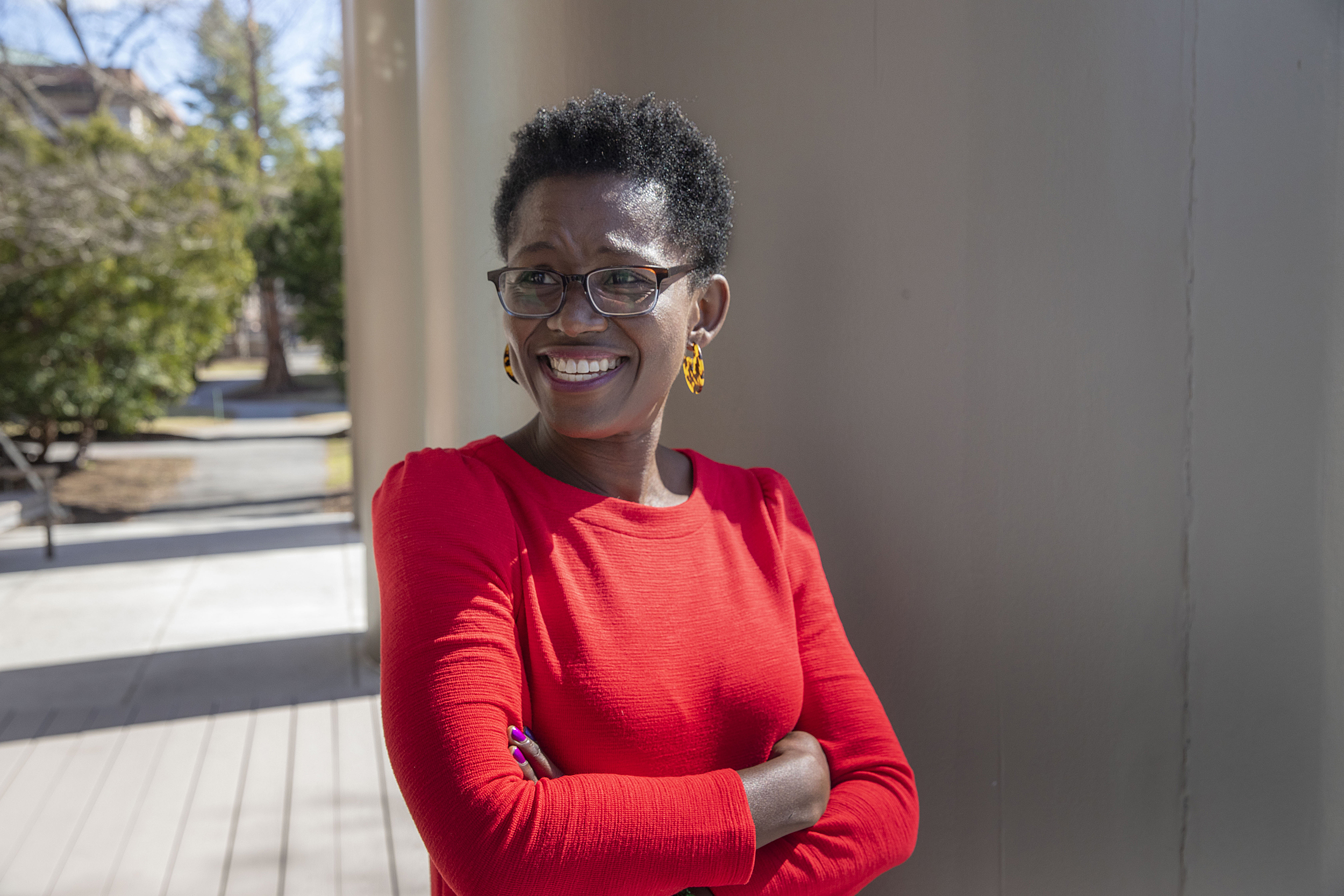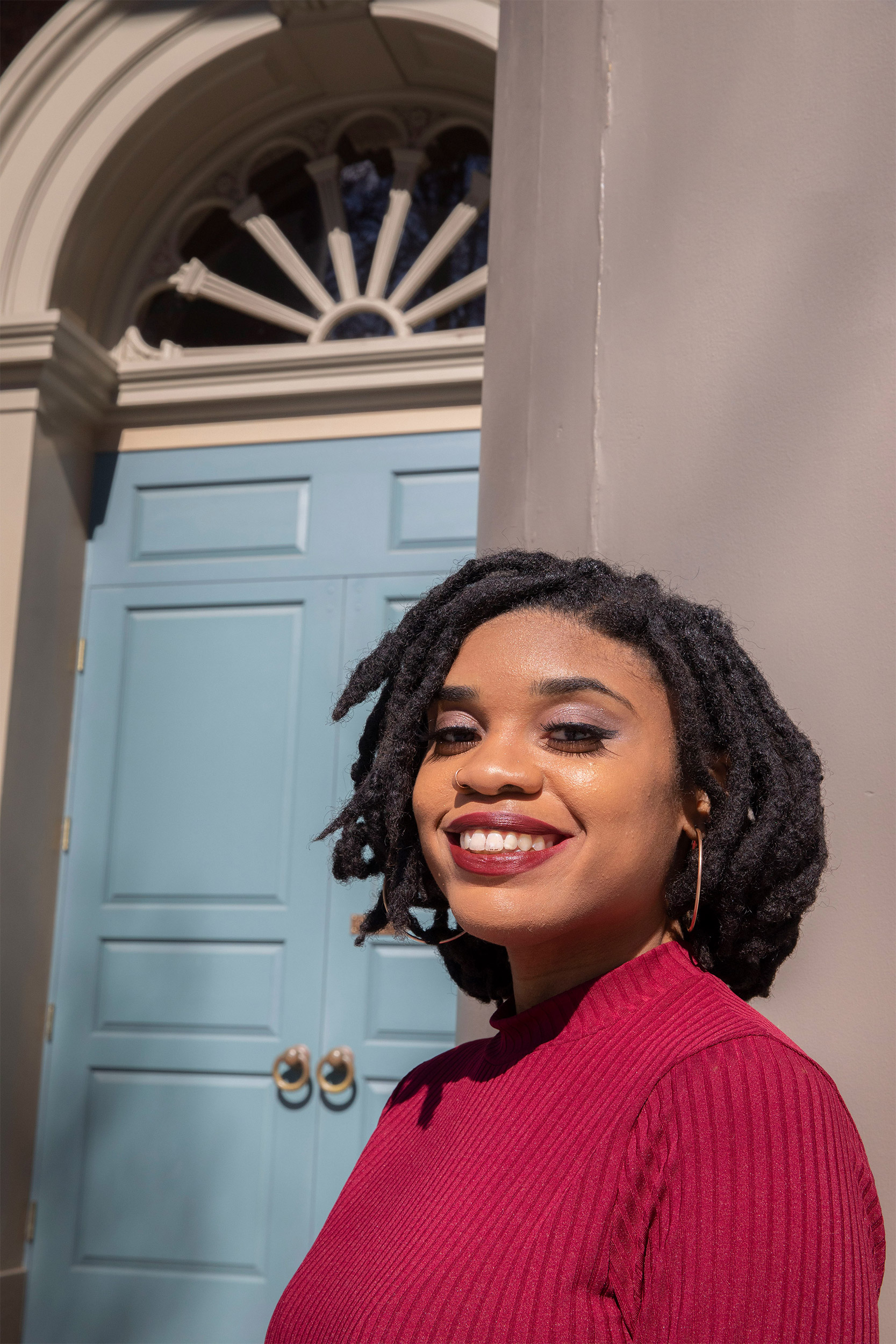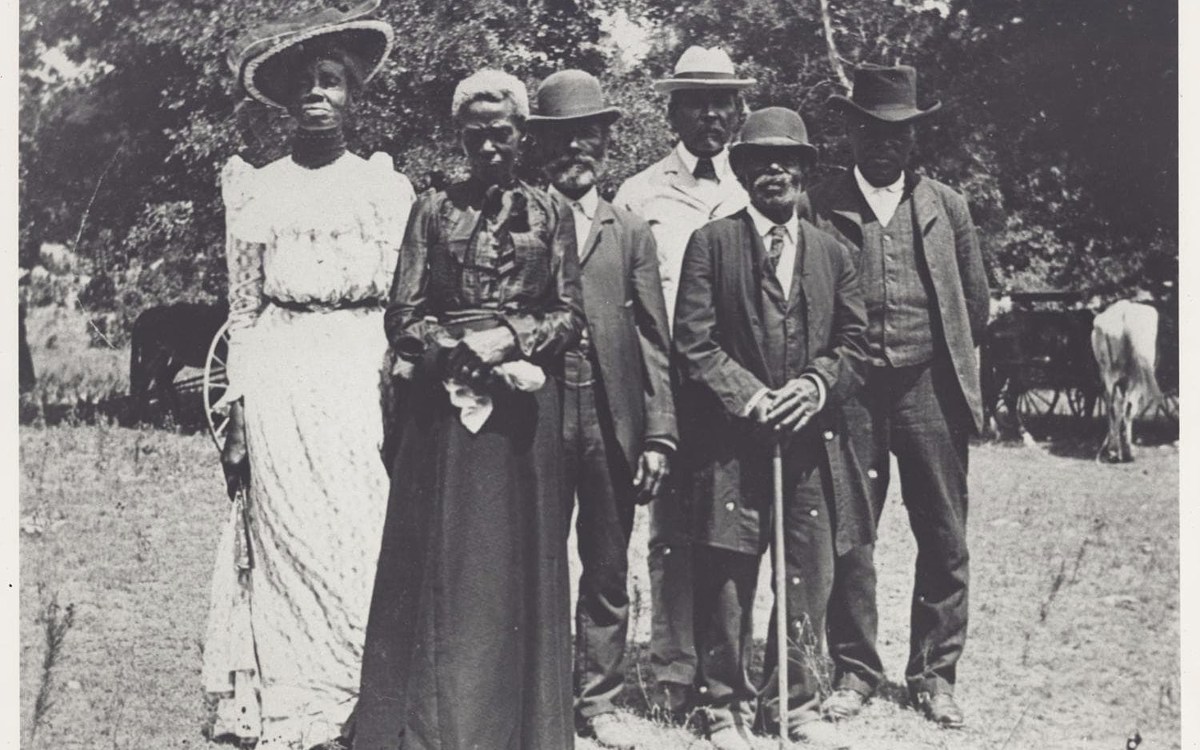
Jasmine Olivier (from left), Shandra Jones, and Jeraul Mackey are members of W.E.B. Du Bois Graduate Society, a student organization of the Graduate School of Arts and Sciences.
Photos by Kris Snibbe/Harvard Staff Photographer
‘I was in Harvard but not of it’
Du Bois Society, named for the University’s 1st Black Ph.D., offers necessary community to minority grad students
When Jeraul Mackey joined the W.E.B. Du Bois Graduate Society in his second year of grad school, he was searching for a community that could help him thrive as a doctoral student of color in the Ivy League.
Mackey, who hails from New Orleans, found much more.
“For many Black people who call Boston and Cambridge home or lived through Hurricane Katrina, community is essential for survival,” said Mackey, who is now a steering committee member of the society. “We are often all we got. What I found was folks who have loved me, supported me, and rooted for me for no other reason than they want to see me succeed.”
Founded in 1983, the Du Bois Society is a student group of the Graduate School of Arts and Sciences (GSAS), and aims to foster community among underrepresented graduate students, all of whom are encouraged to join. It’s one of several affinity groups at the graduate school, and they provide intellectual and social support as students pursue their doctoral degrees.
The need is apparent. With its robust workload and focus on individual research, graduate school can be a lonely experience for anyone, but it can be especially isolating for minority students, who may be the only people of color in their cohorts. Many are the first in their families to attend graduate school (and some the first to go to college at all). According to the National Science Foundation, of the 55,195 research doctorates awarded in 2018, only 2,456, or about 4 percent, went to African Americans.
Mackey joined the group after two female members invited him. “I didn’t know why or what I would be joining,” he said. “But I did know I should listen to Black women.”
“There is something affirming about knowing that your experience is not unique.”
Jeraul Mackey
For Mackey, who is studying inequality in labor markets in the graduate program in education, belonging to the Du Bois Society “makes the road of graduate school a bit easier to travel.”
The group is named after W.E.B. Du Bois, the Black scholar and celebrated Civil Rights figure, who in 1895 became the first African American to earn a doctoral degree from Harvard.
In his essay “A Negro Student at Harvard at the End of the 19th Century,” Du Bois wrote of the isolation he experienced while attending Harvard as “a member of a segregated caste,” and how he found friendship among the “colored students of Harvard” and “the colored folk of Boston and surrounding towns.” Du Bois wrote, “I was in Harvard but not of it.”

“The community is a saving grace intellectually, but it’s truly a blessing in day-to-day life,” said Shandra Jones.
Harvard University
Du Bois’ feeling of not belonging to Harvard is still shared by some minority students, who wrestle with impostor syndrome and microaggressions from white peers and even faculty, who might be too quick to dismiss their research interests. In the fall of 2019, 163 of the 4,372 students enrolled in the Graduate School of Arts and Sciences were Black, according to data from the Office of Institutional Research.
“There is something affirming about knowing that your experience is not unique,” said Mackey. “But it’s also disheartening when you think about that. More than 100 years have gone by, and we’re still having the same experience as Du Bois.”
Shandra Jones, who is a GSAS Ph.D. student in the graduate program in education, agrees.
“What our experience reminds us is that numeric diversity doesn’t beget belonging, doesn’t beget a sense of community, and doesn’t beget thriving,” said Jones, also a steering committee member of the Du Bois Society. “When we get together from across the University, we see a diversification of the institution. But when we go back to our departments, we’re still often the only ones or one of few, navigating spaces alone, sometimes voicing opinions that push against existing narratives and methodologies.”
Besides being a professional support network, the Du Bois Society also functions as a personal one. When Jones’ husband fell ill last year, the group jumped in to babysit her children and offer help. “The community is a saving grace intellectually, but it’s truly a blessing in day-to-day life,” she said.

“… the Du Bois Society has been a lifeline because it has allowed me to be in community with people who understand me because we share the same life experiences,” said Jasmine Olivier.
Kris Snibbe
For Jasmine Olivier, who is a GSAS Ph.D. student in the graduate program in sociology, the organization has given her a community of like-minded individuals who share the same cultural cues and a similar background. It’s a space where she, a first-generation college and Ph.D. student, finds fellowship.
“It’s a space where you’re not the only one,” said Olivier, who is studying the effects of racial inequality on the criminal justice system. “For me, and for a lot of people, the Du Bois Society has been a lifeline because it has allowed me to be in community with people who understand me because we share the same life experiences. It’s also where I’ve met my best friends in graduate school. They’re people I can lean on, who encourage and support me and who keep pushing me forward.”
About 100 students are active members of the Du Bois Society. Before the coronavirus crisis, the group held frequent meetings and activities for students to meet and connect with each other. In early February, it hosted a reception for nearly 200 graduate students of color from universities across the Boston area, with the sponsorship of the Harvard Office for Diversity, Inclusion & Belonging and the GSAS Office of Diversity and Minority Affairs. These days, all activities are held via Zoom, and they include yoga and meditation classes, writing circles, karaoke, and movie and trivia nights.
In his celebrated essay, Du Bois wrote of the kinship he found among the “colored students” at Harvard, with whom he “ate, danced and argued, and planned a new world,” and led “a happy and inspiring life.” The members of the group that bears his name feel similarly grateful.
“There are social factors, individual factors, and institutional factors that contribute to our individual and collective success here,” Jones said. “Students navigate those three spheres every day, and they need support across those three spheres in order to thrive, because we just can’t do it alone.”






